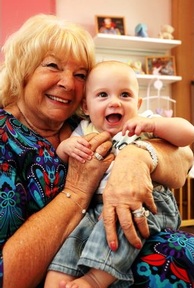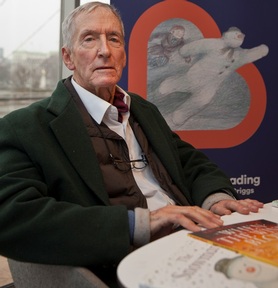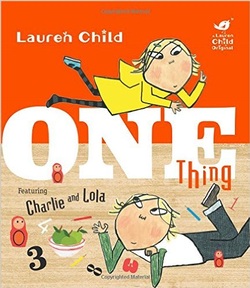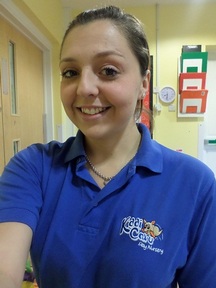Profile: 'We have never turned away a child with special educational needs,' says Kiddi Caru SENCO
The role of a special needs coordinator is extremely demanding. Not only are Special Educational Co-ordinators (SENCOs) instrumental in helping spot young children with special educational needs, but they also have to support both nursery staff and the parents of the children concerned. Every nursery in the UK now has to have one.

Says Natalie Jones, Kiddi Caru’s Colchester nursery Special Educational Needs Co-ordinator (SENCO): “We’re an experienced team here and we are constantly observing children and looking at the Progress Wheel that we draw up for every child each term. This map shows clearly how the child is developing against key developmental stages.”
Communication essential
Natalie Jones began her working life nine years ago at Kiddi Caru and is still there today. Recently awarded Nursery Award Practitioner of the Year for her dedication to duty, she is now the Special Education Needs Co-ordinator at the setting.
She says: “At the moment we have 13 children on the Special Educational Needs register out of 122 – and my main role (apart from my other work as team leader of the under twos) is to ensure that targets are being met and that we are spotting all the young children with special needs.”
Being responsible for the early identification of special educational needs in such a large number of children means that good teamwork, and especially communication, is essential. “I always ask the team to report anything unusual to me – no matter how silly it may seem. From there on I will give suggestions as to what is to be done – whether the strategy we are using for dealing with the child needs to be adjusted, or whether I need to refer the child to an outside expert,” says Ms Jones, adding: “In the course of my work, I regularly contact speech therapists, physiotherapists, occupational therapists and educational psychologists.”
No two days are the same in this role. Recent cases that have been idnetified at the nursery include children with global development delay (which means that specific milestones, such as walking and talking, are not being reached within the normal age range), cerebral palsy and deafness. Adds Ms Jones: “Every day is a challenge in some ways – as you never know quite what child is going to arrive at the nursery. I suppose the main types of disability, we have seen here are speech problems, but we have also had a couple of cases of autism in the last two years and two Down’s syndrome babies. The earlier that disabilities of all types are identified, the sooner help can begin.”
Good outcomes
Early assistance, she maintains can be beneficial. “A few years ago – we had a little three-year-old girl whose parents thought was just slow to speak. There were no other children in the family and her parents thought that nursery school would give her just the boost she needed to start talking.
“She still didn’t talk, however, and we noticed that she was displaying repetitive behaviour patterns and at playtime, for example, insisted that all her bricks were lined up in a certain way. We referred her for speech therapy – and contacted the area SENCO officer. Following assessment over the next year or so, she was eventually diagnosed with autism.
“I’m happy to say that we were able to keep her at the nursery for an extra year – and by the time she left us she was able to count to 10 and tolerate other children. It was obviously a big shock for the parents – and you end up supporting them and helping them adjust to the situation, as well as the little girl.”
Also essential for the SENCO is the ability to respond quickly to any issue at hand to not only facilitate an early diagnosis, but also help the child cope with life as much as possible. Says Ms Jones: “When it comes to a change in strategy, we have a little boy who is two and a half at the moment who is super fidgety. He won’t sit still for a moment, which is difficult when we come to that part of the day that involves ‘circle time’ when the children sit in a circle for up to 10 minutes.
“What we are doing with this little boy is allowing him to do his own thing but encouraging him to sit still for just one minute at a time. This is working and we’re hoping to build it up gradually – and in the meanwhile he is being assessed for autism.”
Whatever the disability, says Ms Jones: “We have never turned away a child with special educational needs: we adapt our activities and environment and if necessary undergo training to enable us to support the child in the best way we possibly can.”
Interesting facts
First job: I came to Kiddi Caru as a student when I was 17 – and I’ve been here ever since!
Favourite book: The Shopaholic novels by Sophie Kinsella
Favourite film: How to lose a guy in 10 days
Favourite piece of music: R ‘n’ B from the 90s
Best present received: A car from my dad
Last holiday: Malaga, Spain
Latest Profiles News
 03-Oct-17
Nursery founder reveals secrets to an 'outstanding' childcare career
03-Oct-17
Nursery founder reveals secrets to an 'outstanding' childcare career
 09-Feb-17
Children's writer and illustrator Raymond Briggs wins lifetime achievement award
09-Feb-17
Children's writer and illustrator Raymond Briggs wins lifetime achievement award
 16-Oct-15
Charlie and Lola author reveals why she chose a Montessori nursery for her daughter
16-Oct-15
Charlie and Lola author reveals why she chose a Montessori nursery for her daughter
 04-Feb-15
'Oral storytelling is one of the most important things you can do with a child', says children's author Emma Chichester Clark
04-Feb-15
'Oral storytelling is one of the most important things you can do with a child', says children's author Emma Chichester Clark
 16-Dec-14
Profile: 'We have never turned away a child with special educational needs,' says Kiddi Caru SENCO
16-Dec-14
Profile: 'We have never turned away a child with special educational needs,' says Kiddi Caru SENCO